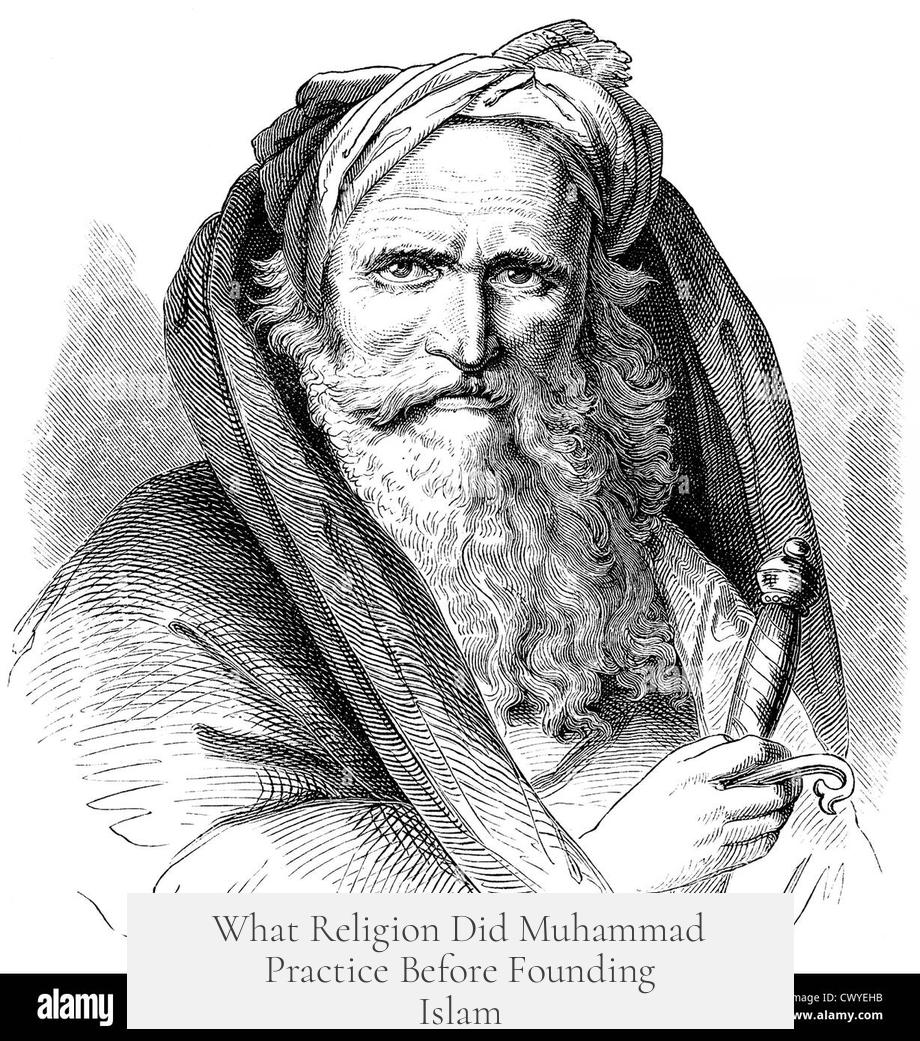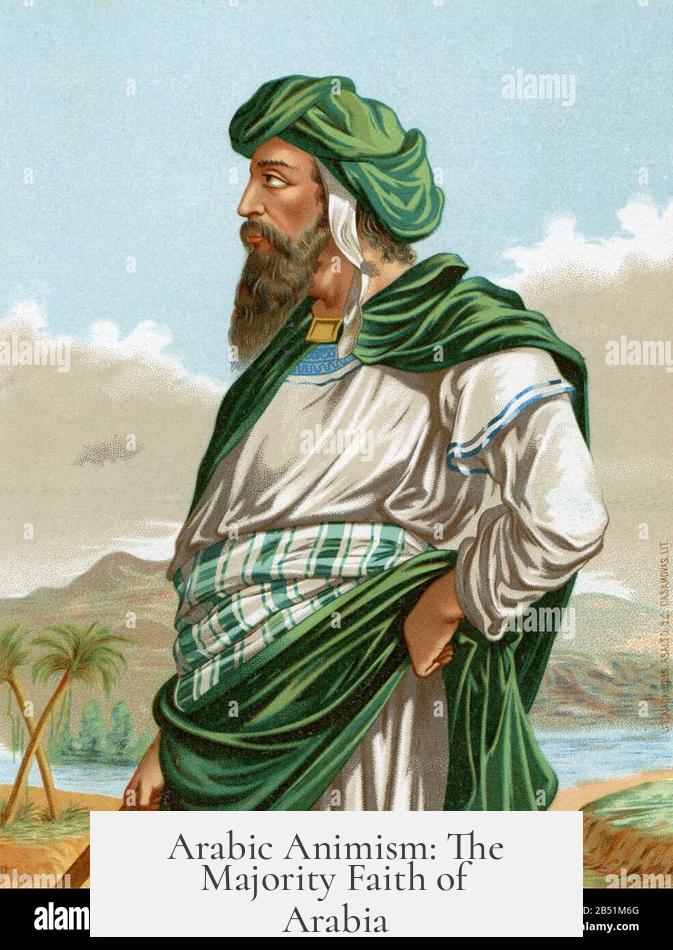Muhammad practiced a form of monotheism before founding Islam, but he was neither Christian nor Jewish. The exact nature of his pre-Islamic belief remains uncertain and debated among scholars and sects. Most agree he followed a monotheistic tradition distinct from Christianity or Judaism.
Sunni hadiths suggest Muhammad adhered to a faith called “Hanefi,” supposedly based on the principles of Abraham. This claim mainly stems from Ahmad Bin Zaini Dahlan Makki, who argued that while Judaism and Christianity did not reach Mecca, Abrahamic monotheism was practiced secretly. However, the existence of Hanefi as a formal religion before Islam lacks concrete historical evidence. References such as Quran 38:47 are cited to emphasize the chosen status of prophets and monotheistic purity but do not confirm Hanefi as an established faith.
Other scholars like Pezdevî propose that all prophets inherently believed in one true God, even if they lacked detailed Islamic teachings. This suggests Muhammad may have been aware of monotheistic ideas “instinctively.” Nonetheless, these views remain speculative and controversial.
Another theory holds that Muhammad followed the Sabian religion, which appears three times in the Quran (2:62, 22:17, 5:69). The Sabians are mysterious; some interpret the term as referring to converts who “leave” (Arabic: saba’a) their old faiths for Islam or as a sect related to Mandaeism. Mandaeism existed in the Arabian region from early centuries AD and shares some linguistic and ritual similarities with Islam. A hadith even refers to Muhammad as a “Sabi,” possibly linking him to this group. However, the actual historical reality of the Sabian religion is unclear.
Most inhabitants of Arabia practiced Arabic animism, worshipping multiple spirits and idols. Muhammad’s early monotheism stood apart from the prevalent polytheistic beliefs.
| Perspective | Key Points | Evidence Strength |
|---|---|---|
| Hanefi | Monotheism based on Abraham; unsupported formally; cited in Sunni hadith | Weak |
| Sabian Religion | Mysterious group mentioned in Quran; possibly Mandaean; unclear existence | Uncertain |
| Arabic Animism | Dominant regional religion; polytheistic | Strong historical presence |
- Muhammad practiced monotheism but was not Christian or Jewish.
- The Hanefi religion is a proposed Abrahamic faith without solid evidence.
- The Sabian religion’s historical reality and nature remain unclear.
- Most Arabian people at the time adhered to animistic traditions.
- Muhammad’s beliefs likely represented a unique monotheistic strand prior to Islam.
What Religion Did Muhammad Practice Before Founding Islam?

To cut through the mystery right off the bat: Muhammad did not practice a formal, established religion such as Christianity or Judaism before founding Islam, yet evidence suggests he was monotheistic, adhering to a belief system aligned with Abrahamic principles. The details get murky and are worth exploring because this question opens a fascinating window into early 7th-century Arabian spirituality and the religious environment that shaped Islam’s emergence.
The Fog of History and Sectarian Views
The truth is, scholars don’t have a definitive answer about Muhammad’s precise religious practice before Islam. This topic stirs controversy. It also divides Islamic sects without a clear consensus. Everyone agrees on one thing, though: Muhammad was not Christian or Jewish. Despite living near these traditions, the Prophet’s pre-Islamic faith did not neatly fit into existing Abrahamic religions.
So, what beliefs did he hold? Most evidence leans toward a form of monotheism. He believed in a single God but was not part of the organized monotheistic religions known at the time. This nuance dramatically impacts how scholars and believers interpret the roots of Islam.
Hanefi: The Alleged Religion Based on Abraham’s Principles
Here’s an intriguing—and controversial—claim coming from Sunni hadiths. A group of scholars, especially Ahmad Bin Zaini Dahlan Makki, suggests Muhammad followed an unknown religion called “Hanefi”.
“Even though Judaism and Christianity never reached Mecca, the religion based upon Abraham’s principles were still practiced behind curtains. This was our Prophet’s (s.a.v.) religion.”
Hanefi supposedly refers to a monotheistic faith traced to Abrahamic ideals before Islam’s formal birth. But before we start picturing a neat little sect with neat rules, here’s the kicker: there’s no solid evidence that this religion ever existed.
Proponents lean heavily on Quranic verse Sa’d 38:47, which praises prophets as “among the chosen and outstanding.” Critics argue that “outstanding” could just mean “good people” focused on monotheism without specifying a distinct religion. In essence, being good, especially by shunning shirk (polytheism), might be all this verse implies.
An additional thought by Pezdevî adds a metafictional twist—prophets were created knowing Islam instinctively, even before it was revealed. But without hard proof, the concept stays more whimsical philosophy than history.
Sabian Religion: A Curious Candidate
Another contender for Muhammad’s pre-Islamic faith is the Sabian religion. Here’s where the plot thickens: it isn’t clear if this religion even existed as a distinct faith group in Arabia.
The Qur’an mentions Sabians three times, specifically in al-Baqarah 2:62, al-Hajj 22:17, and al-Maa’idah 5:69. But what exactly these verses mean is debated.
Some argue “Sabii” might mean one who “leaves” their old religion, emerging as a convert—derived from the Arabic verb “saba’a.” Others see a link to the Mandaeans, a Gnostic group whose beliefs and rituals bear some resemblance to Islam—words like “Allah,” “salah,” “Qur’an,” “nebi” all echo in Mandaeism.
There’s even a hadith calling Muhammad a Sabi, adding a tantalizing whisper in favor of this theory. Yet, no firm proof crowns the Sabian identity as Muhammad’s prior faith.
Arabic Animism: The Majority Faith of Arabia

What was dominant before any of this speculation? At the time, most in the Arabian Peninsula, especially the southern tribes, followed Arabic animism. This spiritual practice involved worship of multiple deities and spirits found in nature—mountains, trees, stones.
However, Muhammad’s monotheistic belief clearly set him apart from this polytheistic background. His faith broke with animism’s norm, aligning instead with a God transcending the natural world.
Why Does It Matter?
Why dig into Muhammad’s pre-Islamic faith? This mystery reveals how Islam emerged neither in isolation nor by pure invention, but as an evolution. Muhammad’s belief anchored itself in a deeper tradition of monotheism in Arabia, refuting pagan polytheism dominant in his culture.
Theories like Hanefi or Sabian attempt to link Islam back to familiar Abrahamic roots or forgotten monotheistic groups. Yet the lack of evidence shows we must approach history with caution.
Understanding Muhammad’s spiritual background also helps explain the Quran’s language and themes—its call back to Abraham’s God, its rejection of shirk, and its embrace of prophets before Muhammad in a continuum, not a break.
Final Takeaway
In short: before founding Islam, Muhammad followed a monotheistic belief probably rooted in Abrahamic traditions but distinct from Judaism and Christianity. Whether this was Hanefi, Sabian, or an unnamed form of monotheism will likely remain part of historical debate.
Our best bet: Muhammad was a man seeking spiritual truth in a complex religious landscape, believing in one God when polytheism reigned—the perfect soil for the message of Islam to take root.
Curious: If there was a “pre-Islamic Hanefi” sect, how would it look today? And if Sabian influences are real, what does that say about Islamic origins? These questions keep history alive and invite us to explore beyond simple answers.
What religion did Muhammad practice before founding Islam?
Muhammad was neither a Christian nor a Jew. Most sources suggest he followed a form of monotheism, but the exact religion remains uncertain.
What is the Hanefi belief about Muhammad’s early religion?
According to some Sunni hadiths and Ahmad Bin Zaini Dahlan Makki, Muhammad followed a religion called ‘Hanefi,’ based on Abraham’s principles. However, there is no clear evidence that Hanefi was an organized religion at that time.
Did Muhammad follow the Sabian religion before Islam?
Some believe Muhammad practiced the Sabian religion, mentioned in the Quran. But it is unclear if this religion truly existed or if the term “Sabian” refers to converts who left other faiths for Islam.
How does Mandaeism relate to Muhammad’s pre-Islam beliefs?
Mandaeism, present in the Arabian Peninsula, shares similarities with Islam. Some think Sabian religion was connected to Mandaeism, which may have influenced Muhammad’s early monotheistic practices.
Was Arabic Animism Muhammad’s initial religion?
The dominant religion in southern Arabia was Arabic Animism, involving multiple gods and spirits. Muhammad’s beliefs were probably different, emphasizing one God before Islam’s founding.




